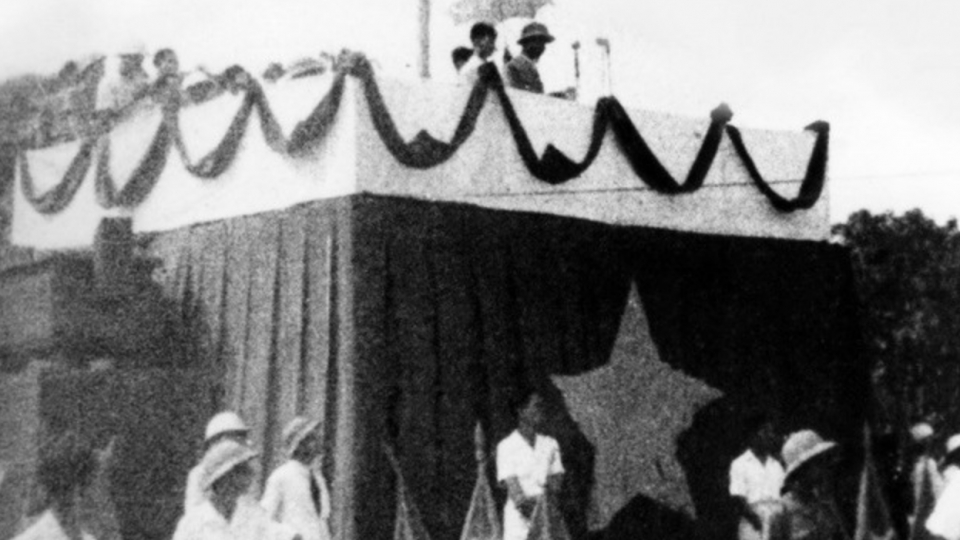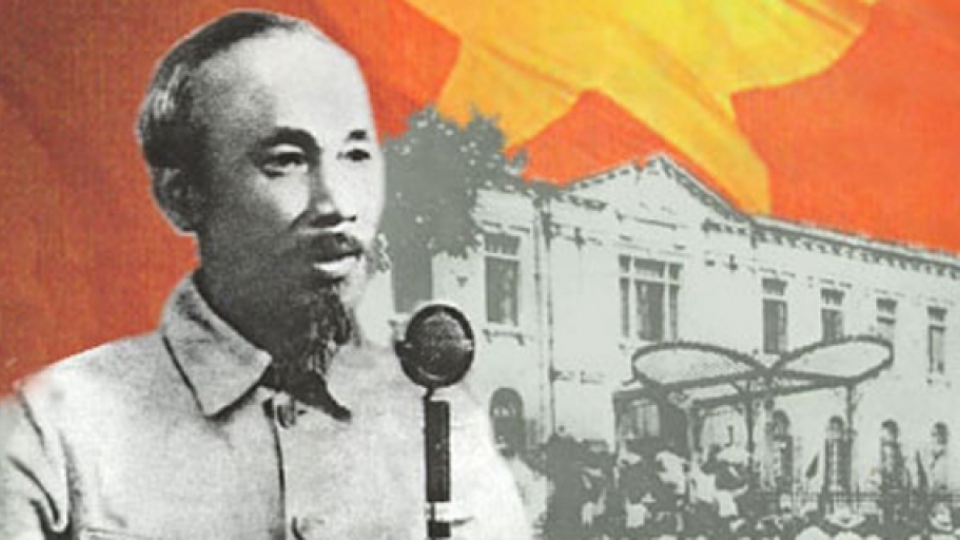Human rights inseparable from national rights: Timeless values from the Declaration of Independence
VOV.VN - On September 2, 1945, at Ba Dinh Square, President Ho Chi Minh proclaimed the Declaration of Independence, giving birth to the Democratic Republic of Vietnam and ushering in a new era of freedom and independence for the nation.
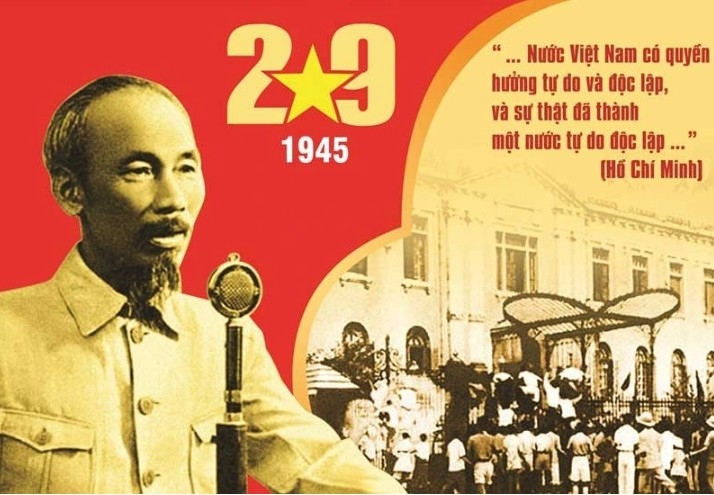
Beyond declaring an end to colonial rule, the Declaration affirmed the close relationship between human rights and national rights, applying the quintessence of humanity’s thought on human rights to Vietnam’s realities.
Human rights and national rights- a dialectical unity
According to Dr. Vu Manh Ha, Director of the Ho Chi Minh Museum, the Declaration of Independence reflects President Ho Chi Minh’s thought on the linkage between national rights and human rights, between national independence and individual freedom. In his view, people cannot enjoy genuine freedom if the nation is under colonial rule, nor can independence be meaningful if citizens are deprived of happiness and self-determination. By citing historic declarations of humanity, the opening of the Declaration of Independence laid a solid foundation for the principle that “Nothing is more precious than independence and freedom.”
Dr. Hoang Dieu Thao from the Ho Chi Minh National Academy of Politics analyzed that in President Ho Chi Minh’s Declaration of Independence, human rights and national rights are closely intertwined. Human rights are not only the rights of individuals but also the right of each nation to self-determination. These two categories of rights are unified and serve as a premise for each other. This unity is dialectical: there are no human rights that exist outside the nation, and no national rights detached from human rights or unrelated to human beings. Therefore, the struggle to safeguard national rights is at the same time a struggle for human rights, and the defence of human rights also serves to protect and affirm national sovereignty.
The Declaration of Independence was proclaimed on September 2, 1945, while it was not until December 10, 1948 that the United Nations General Assembly adopted the Universal Declaration of Human Rights. It can therefore be said that Ho Chi Minh’s thought on human rights had “anticipated the common awareness of the international community.”
Associate Professor and Dr. Hoang Thi Lan, Director of the Institute of Ethnicity and Religion under the Ho Chi Minh National Academy of Politics, shared the view that the Declaration of Independence demonstrates the inseparable dialectical relationship between human rights and national rights. When a nation is invaded and deprived of its independence and self-determination, the fundamental rights of its people cannot be guaranteed. Thus, human rights cannot be separated from a nation’s freedom and independence. National liberation is at the same time human liberation.
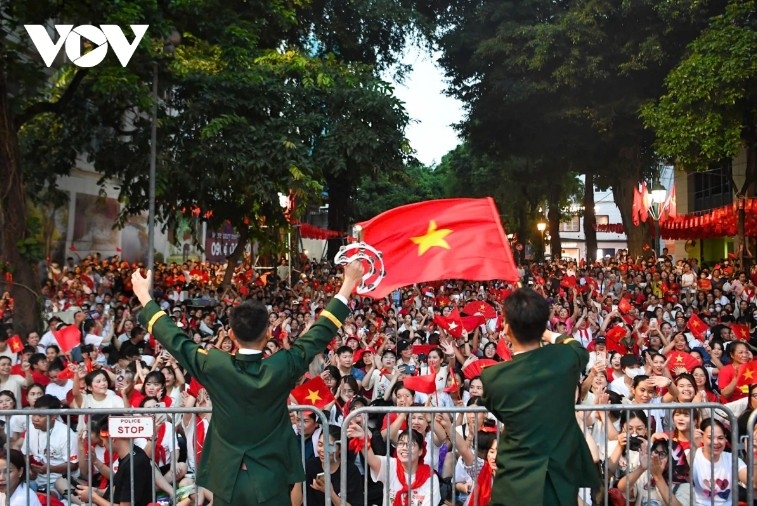
President Ho Chi Minh held that if national liberation does not bring real freedom, food, and clothing to the people, that liberation is meaningless. Therefore, the emancipation of human beings from oppression and exploitation and the safeguarding of their rights must go hand in hand with national independence and self-determination, ensuring peace, prosperity, and happiness for every citizen.
The unity of human rights and national rights lies in their dialectical nature: there are no human rights that exist outside the nation, and no national rights detached from human rights or unrelated to human beings. Therefore, the struggle to safeguard national rights is also a struggle for human rights, and conversely, the defence of human rights is to protect and affirm a nation’s sovereignty, independence, and right to determine its destiny. To regain freedom and equality for each individual, national freedom and independence must first be secured.
Through the Declaration of Independence, President Ho Chi Minh elevated “human rights” to “national rights,” and this principle has become a truth of the era. His Declaration of Independence embodied a vision ahead of its time, clearly presenting human rights in a dialectical and organic relationship with national independence.
Dr. Nguyen Thi Mai Chi from the Ho Chi Minh National Academy of Politics observed that in the Declaration of Independence, President Ho Chi Minh viewed human beings from two dimensions: the individual and the community. Accordingly, national independence and the right of self-determination constitute a fundamental and essential aspect of human rights. This represents President Ho Chi Minh’s major contribution to humanity in both theoretical understanding and practical application of human rights.
His declaration of national rights marked a milestone in the history of humankind’s struggle for progress and continues to retain its relevance today.
“Struggling for human rights is not only about defending individual rights but also about upholding national rights. In Ho Chi Minh’s thought, the fundamental rights of individuals are inseparably unified with the fundamental rights of the nation. Therefore, the fight for individual rights must go hand in hand with safeguarding national independence and the right of self-determination. Individual rights can only be genuinely protected when national rights are secured; only when the nation enjoys independence can the people enjoy freedom and live in happiness,” analyzed Dr. Nguyen Thi Mai Chi.
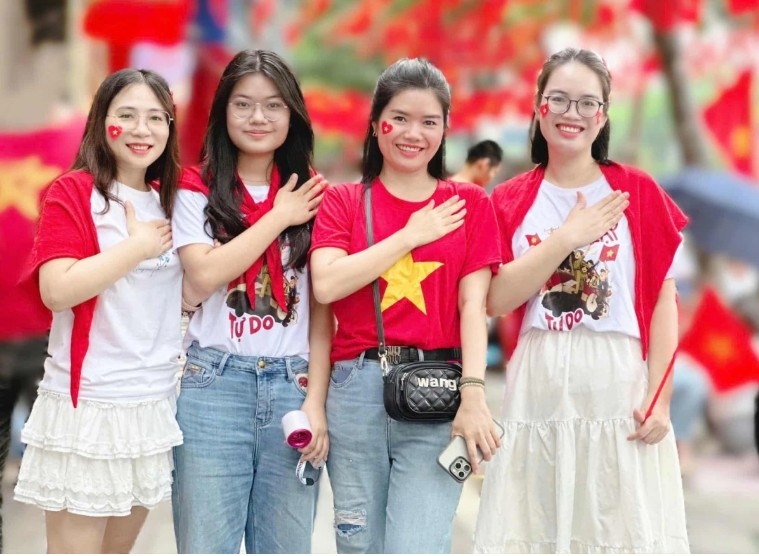
From human rights in Declaration of Independence to human strategy in new era
According to Dr. Hoang Dieu Thao, eight decades after President Ho Chi Minh delivered the Declaration of Independence, the Communist Party of Vietnam and the State have made consistent efforts to realize his vision on human rights and citizens’ rights. Step by step, these principles have been institutionalized, refined, and clearly defined.
The exercise of these two rights in Vietnam aims to ensure that every citizen increasingly enjoys human rights and civil rights in connection with the country’s process of nation-building, safeguarding, and development, particularly over nearly four decades of reform and deep international integration.
In international human rights activities, Vietnam has also made positive contributions to many United Nations mechanisms in various capacities: as a non-permanent member of the UN Security Council for the 2020–2021 term, a member of the Human Rights Council for the 2023–2025 term, and a responsible member of the United Nations in realizing human rights and civil rights within the global community of nations.
According to Assoc. Prof. Dr. Pham Duy Duc from the Ho Chi Minh National Academy of Politics, the core elements of human rights emphasized by Ho Chi Minh in the Declaration of Independence are: human rights are natural, sacred, and inviolable; human rights must be guaranteed within the framework of an independent nation; and independence, freedom, and happiness for every individual are the ultimate ideals of the revolution.
In the new context of globalization, integration, and the Fourth Industrial Revolution, the Party has identified human beings as both the goal and the driving force of development.
The Resolution of the 13th National Party Congress (2021) underscores the need to foster national self-reliance and the aspiration for a prosperous and happy country, to spur comprehensive human development, to improve quality of life, and to ensure that no one is left behind.
Today’s human development strategy goes beyond ensuring the basic human rights-the right to life, freedom, and the pursuit of happiness, to encompass broader rights such as the right to education, the right to development, the right to participation, and the right to creativity, in line with modern human rights standards.
From Ho Chi Minh’s ideology on human rights, the Party translated it into a comprehensive human development strategy, regarding it as both a key driving force and the ultimate objective of all development policies.
The relationship between Ho Chi Minh’s thought on human rights in the Declaration of Independence and the Party’s human development strategy in the new era represents a continuous historical process of inheritance and creative development. Ho Chi Minh’s thought serves as the foundation, while today’s strategy embodies and expands those humanistic values in a new context, with the aim of realizing Vietnam’s aspiration for strength, prosperity, and happiness.
The relationship between Ho Chi Minh’s thought on human rights in the Declaration of Independence and the Party’s human development strategy in the new era represents a continuous historical process of inheritance and creative development. Ho Chi Minh’s thought serves as the foundation, while today’s strategy embodies and expands those humanistic values in a new context, with the aim of realizing Vietnam’s aspiration to become a powerful, prosperous, and happy nation.
Assoc. Prof. Dr. Pham Duy Duc emphasized the need to further disseminate and educate about the values of the Declaration of Independence, linking human rights with national rights and civic responsibility.
Entering a new stage of development, the country continues to refine institutions and policies to safeguard human rights in line with the 2013 Constitution and international conventions, while developing suitable human development indices.
Prioritizing investment in education, science and technology, digital transformation, and high-quality human resources is considered essential, alongside efforts to reduce multidimensional poverty, ensure social security, foster a humane cultural environment, and ignite aspirations for development. Vietnam also remains proactive in international integration and cooperation on human rights, education, and scientific research.
“In the time ahead, with strong political will in the lead-up to the 14th National Party Congress, broad social consensus, and comprehensive, feasible measures, it is believed that Vietnam’s human development strategy in the new era will be effectively implemented. This will further affirm the enduring value of Ho Chi Minh’s thought and Vietnam’s aspiration for a powerful and prosperous nation in the 21st century,” Assoc. Prof. Dr. Pham Duy Duc expressed with confidence.


